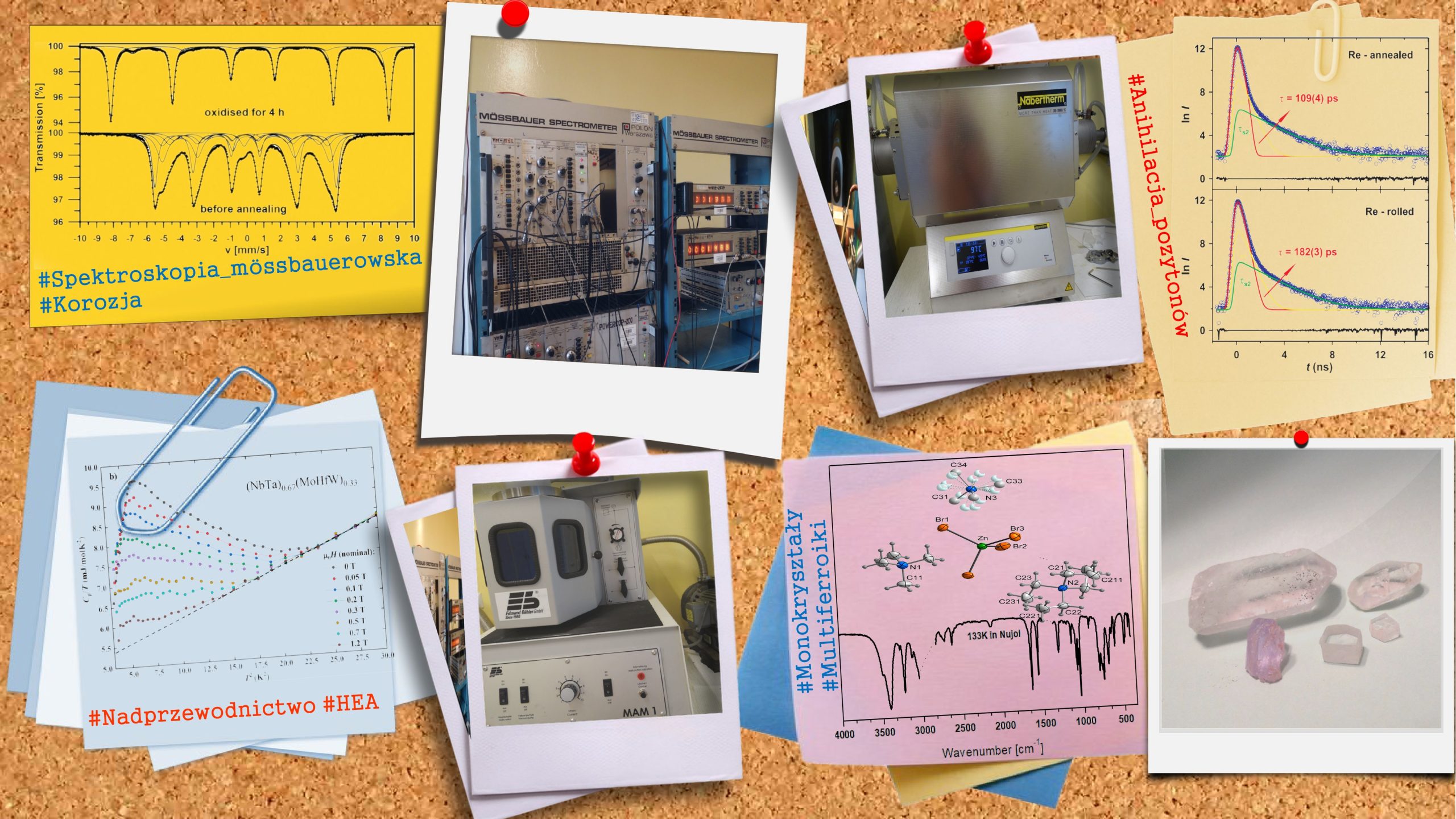
Macroscopic Quantum Phenomena and Functional Materials Division
Head:
dr hab. Rafał Idczak, prof. UWr
Members:
dr inż. Robert Konieczny
dr Monika Krawczyk
mgr Wojciech Nowak
dr Dorota Podsiadła
dr Piotr Staniorowski
dr Magdalena Sobota
dr Piotr Sobota
PhD Students:
mgr Bartosz Rusin
Ongoing research on such topics as:
- corrosion and and thermodynamics of alloys containing iron;
- processes of formation and evolution of structural defects in minerals, resins, polymers, amorphous materials, metal alloys, and organic compounds;
- phenomena of superconductivity and magnetism in solid materials and nanoparticles;
- sodium-ion batteries;
- properties of ferroelectric and ferroelastic crystals, with a particular regard to structural phase transitions.
Used techniques and research methods:
- Positron annihilation lifetime spectroscopy (PALS).
- Mössbauer spectroscopy (CEMS, TMS). Probe 57Fe, temperature range 77 K – 1300 K.
- Measurement of electrical permeability as a function of temperature, in the presence of an external electric field and under mechanical stress, and ferroelectric hysteresis measurements.
- Measurement of optical birefringence and other optical parameters using light deflection, and spectroscopic measurements showing phase transformations in crystals (mainly using IR spectroscopy).
- Structural studies of dielectric materials using X-ray diffraction.
- Phase transition studies based on dilatometric measurements in temperatures of 1.8 – 300 K and fields with induction of up to 9 T.
- Measurement of magnetisation and magnetic susceptibility of materials using VSM in temperatures of 1.8 – 1000 K, fields with induction of up to 9 T, and pressure up to 1.3 GPa.
- Studies of changes in specific heat, Seebeck effect and thermal conductivity in temperatures of 1.8 – 400 K and fields with induction of up to 9 T.
- Measurement of electrical resistivity, electron transport, and Hall effect in temperatures of 1.8 – 300 K and fields with induction of up to 9 T. Resistivity in pressures of up to 3 GPa.
Production and preparation of test materials:
- Arc furnaces.
- Resistance furnaces.
- Planetary ball mills.
- Vertical hardening machine.
- Hydraulic press.
- Rolling machines.
- Low-pressure metal hydrogenation equipment.
- Laboratory for growing crystals from aqueous solutions.
- Induction furnace.
- Glovebox.
